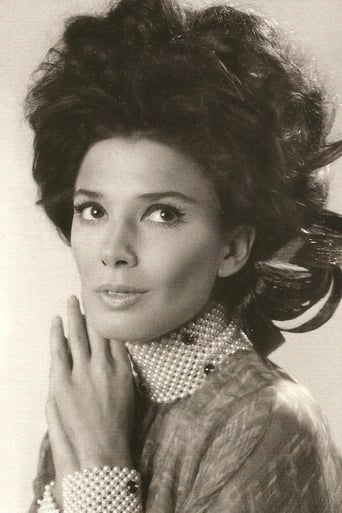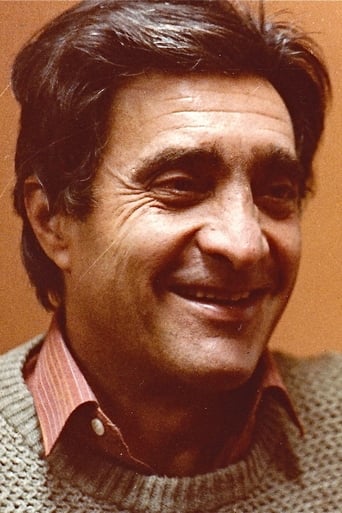TrueJoshNight
Truly Dreadful Film
WasAnnon
Slow pace in the most part of the movie.
Comwayon
A Disappointing Continuation
Skyler
Great movie. Not sure what people expected but I found it highly entertaining.
gavin6942
The story of Mecha (Graciela Borges), a middle-aged woman in her 50s who has several teenagers. Her husband Gregorio (Martín Adjemián) wants to remain looking young, and both of them have to deal with their gloomy Amerindian servants, whom Mecha accuses of theft and laziness.Stephen Holden wrote, "The steamy ambiance in which the characters fester is a metaphor for creeping social decay...La Ciénaga perspires from the screen, it creates a vision of social malaise that feels paradoxically familiar and new." The best part is early on, where the clinking of glasses makes everything else soundless. What is being said about these people who do nothing all day but drink and lounge around a pool far too filthy to swim in?
falconv2
I didn't know anything about the film before seeing it. Not sure if I would have watched it, knowing what I know now.The opening scene really grabbed me. The lack of family members' interest, even reacting to one of their own falling and becoming seriously injured. Some right there don't even seem to know anything has happened.After that incident however, I get lost. The host of characters, the intermingling of seemingly unconnected story lines and the sheer number of players confused me to no end. A family tree or some kind of chart depicting relationships would have been helpful.Aboout 40 minutes into the film some understanding developed, so what! I became bored.After reading other user comments it seems this film can only be appreciated by those having a deep understanding of the culture and economics of the Argentine sub-culture it reflects. So now I can better understand but still feel my time viewing it was wasted.
Lorene Anderson
Lurid colors cover a visual stink that permeates La Cienaga and turns all interaction sinister around the edges. The camera work was queasy and the cuts were brutal--sometimes fatal…I loved it. La Cienaga sticks in the memory like the urban legends the children tell to scare each other. The story is an almost voyeuristic tour of the families of two sisters, Tali and Mecha, one in the city, one in the swamp. We meet Mecha, the rich swamp-dwelling sister, by her filthy swimming pool surrounded by other zombie-esquire party-goers, all half passed out in pool chairs from the combined effect of alcohol and the rainforest heat. All of her bored kids are scarred, beat-up, scratched—one is missing an eye. Armed with hunting rifles, the swamp is their main source of entertainment—except for awkward Momi, who spends most of her time clinging to Isabella ("Isa"), the native Argentinean house servant in Mecha's crumbling estate. Tali's family, living in the city, seems a little more sane, a little more whole, but her kids are smack in the middle of terrifying stages of growing up. Her two hyper-gendered daughters on the verge of puberty wear enough woman's make-up to look like kiddie-porn stars or circus clowns. When they are not being chased by little boys with water balloons, they are taunting their little brother with stories of the African rat-dog. Some of the only music in the film follows Isa, the native; all else is the constant rumble of thunder, the ice tinkling in the Mecha's drink, and the silence of sullen frustration. Every scene is dangerous in its way, every volatile character was so full of desires gone bad, and all beauty was rotten underneath. Director Lucrecia Martel has created a refreshingly unromantic film in the romantic location of the Argentinean rainforest that leaves you with images as sticky as the heat.
Howard Schumann
La Ciénaga, directed by first-timer Lucrecia Martel, uses a seemingly uneventful series of episodes and an atmospheric sense of impending doom to make a statement about the decadence of the Argentine middle class. The decaying families are portrayed without much sympathy, showing them as racist, uncaring, and self-indulgent.The screen veritably pulsates with life and ugliness. Every frame is filled with children and animals running in and out, dogs barking, everyone talking at the same time, music blaring, and the TV bellowing something about Virgin Mary sightings. It's almost as if the camera is eavesdropping on an intimate family gathering, making the viewer feel like an uninvited guest at a party.The narrative (such as it is) is about two families and their children thrown together at the end of a stifling hot summer, and how everybody bears the marks of carelessness and inattention: scars, burns, bruises. Nothing works in this milieu; the pool is very dirty, one boy has lost one eye, another is afraid of stories about dog-rats, drinking is excessive and accidents result as a consequence. The mother (Mecha) is a drunk who just seems to be waiting for the end to face life in bed for 20 years like her own mother. She makes racist remarks directed toward her servant, yells at her own daughter Momi, (who seems to be infatuated with the servant), and makes vague plans to go to Bolivia to buy school supplies for the kids.La Cienaga is not easy to watch. It is moody, sensual, atmospheric, almost unbearably intimate, with a constant level of anxiety and tension. You can feel the humidity building on your forehead. Danger is always near, and violence seems not just possible but probable. There is an unspoken longing for something, anything good to happen to relieve the emptiness of life. I was reminded of Chekhov and Dostoyevsky. It is almost Bunuelian in its feeling but, unlike Bunuel, it is not dark comedy, just dark.The unspoken backdrop is the recent history of Argentina, an unending nightmare of political violence, social unrest, and fiscal disaster. Only the children give us any hope for the future. It is a compelling picture of class arrogance with an ending as moving as any I've seen. Strongly recommended but bring a lot patience and a de-humidifier.






